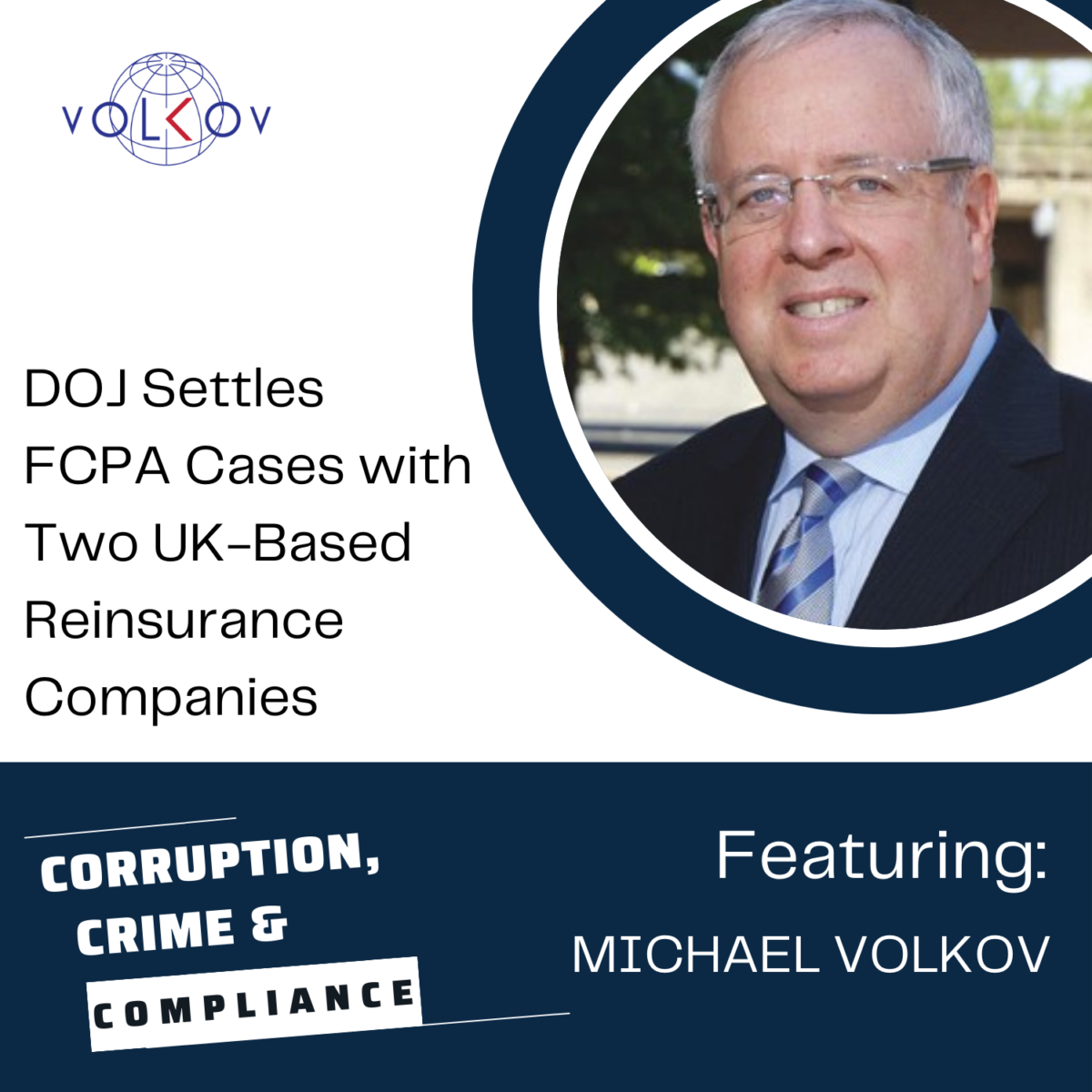What you’ll learn on this podcast episode
There is a lingering misconception that ethics and compliance programs are too US-centric, when in fact they are largely global in nature. What trends and best practices have emerged to underscore the growing reach of E&C? In an episode of the Corruption, Crime, and Compliance podcast, host Michael Volkov dives into the topic of program effectiveness with Susan Divers, director of thought leadership and best practices at LRN. Listen in as the two unpack the latest findings and best practices from the Global Standards Edition of LRN’s Ethics & Compliance Program Effectiveness Report.
Download the LRN E&C Program Effectiveness Report – Global Standards Edition.
Guest: Susan Divers
Susan Divers is a senior advisor with LRN Corporation. In that capacity, Ms. Divers brings her 30+ years’ accomplishments and experience in the ethics and compliance area to LRN partners and colleagues. This expertise includes building state-of-the-art compliance programs infused with values, designing user-friendly means of engaging and informing employees, fostering an embedded culture of compliance and substantial subject matter expertise in anti-corruption, export controls, sanctions, and other key areas of compliance.
Prior to joining LRN, Mrs. Divers served as AECOM’s Assistant General for Global Ethics & Compliance and Chief Ethics & Compliance Officer. Under her leadership, AECOM’s ethics and compliance program garnered six external awards in recognition of its effectiveness and Mrs. Divers’ thought leadership in the ethics field. In 2011, Mrs. Divers received the AECOM CEO Award of Excellence, which recognized her work in advancing the company’s ethics and compliance program.
Mrs. Divers’ background includes more than thirty years’ experience practicing law in these areas. Before joining AECOM, she worked at SAIC and Lockheed Martin in the international compliance area. Prior to that, she was a partner with the DC office of Sonnenschein, Nath & Rosenthal. She also spent four years in London and is qualified as a Solicitor to the High Court of England and Wales, practicing in the international arena with the law firms of Theodore Goddard & Co. and Herbert Smith & Co. She also served as an attorney in the Office of the Legal Advisor at the Department of State and was a member of the U.S. delegation to the UN working on the first anti-corruption multilateral treaty initiative.
Mrs. Divers is a member of the DC Bar and a graduate of Trinity College, Washington D.C. and of the National Law Center of George Washington University. In 2011, 2012, 2013 and 2014 Ethisphere Magazine listed her as one the “Attorneys Who Matter” in the ethics & compliance area. She is a member of the Advisory Boards of the Rutgers University Center for Ethical Behavior and served as a member of the Board of Directors for the Institute for Practical Training from 2005-2008.
She resides in Northern Virginia and is a frequent speaker, writer and commentator on ethics and compliance topics. Mrs. Divers’ most recent publication is “Balancing Best Practices and Reality in Compliance,” published by Compliance Week in February 2015. In her spare time, she mentors veteran and university students and enjoys outdoor activities.
Michael Volkov specializes in ethics and compliance, white collar defense, government investigations, and internal investigations. Michael devotes a significant portion of his practice to anti-corruption, sanctions, trade, antitrust, and AML compliance and defense. He regularly assists clients on FCPA, UK Bribery Act, AML, OFAC, Export-Import, Securities Fraud, and other issues.
Michael has extensive trial experience and has developed a problem-solving approach to serve client needs. He has extensive contacts in the federal government and on Capitol Hill. Given his broad government experience, he represents clients in federal and state court, before the Justice Department and other federal agencies, and on Capitol Hill.
Prior to launching his own law firm, Mr. Volkov was a partner at LeClairRyan (2012-2013); Mayer Brown (2010-2012), Dickinson Wright (2008-2010); Deputy Assistant Attorney General in the Department of Justice (2008); Chief Counsel, Subcommittee on Crime, Terrorism and Homeland Security, House Judiciary Committee (2005-2008); and Counsel, Senate Judiciary Committee (2003-2005); Assistant US Attorney, United States Attorney’s Office for the District of Columbia (1989-2005); and a Trial Attorney, Antitrust Division, United States Department of Justice (1985-1989).
Mr. Volkov resides in Washington, D.C., San Diego, California, and Marsala, Italy, with his wife and six children. He and his wife enjoy traveling, the arts, and philanthropic activities. Mr. Volkov is an avid tennis player.








